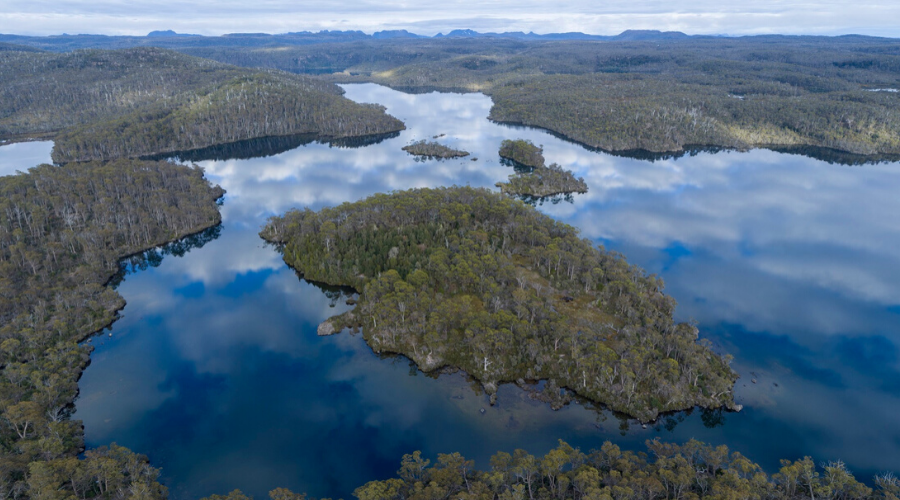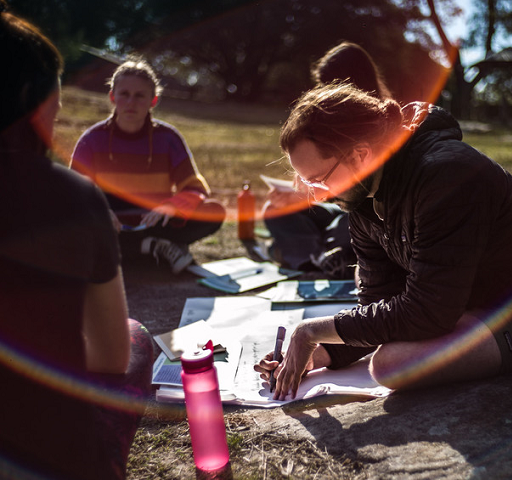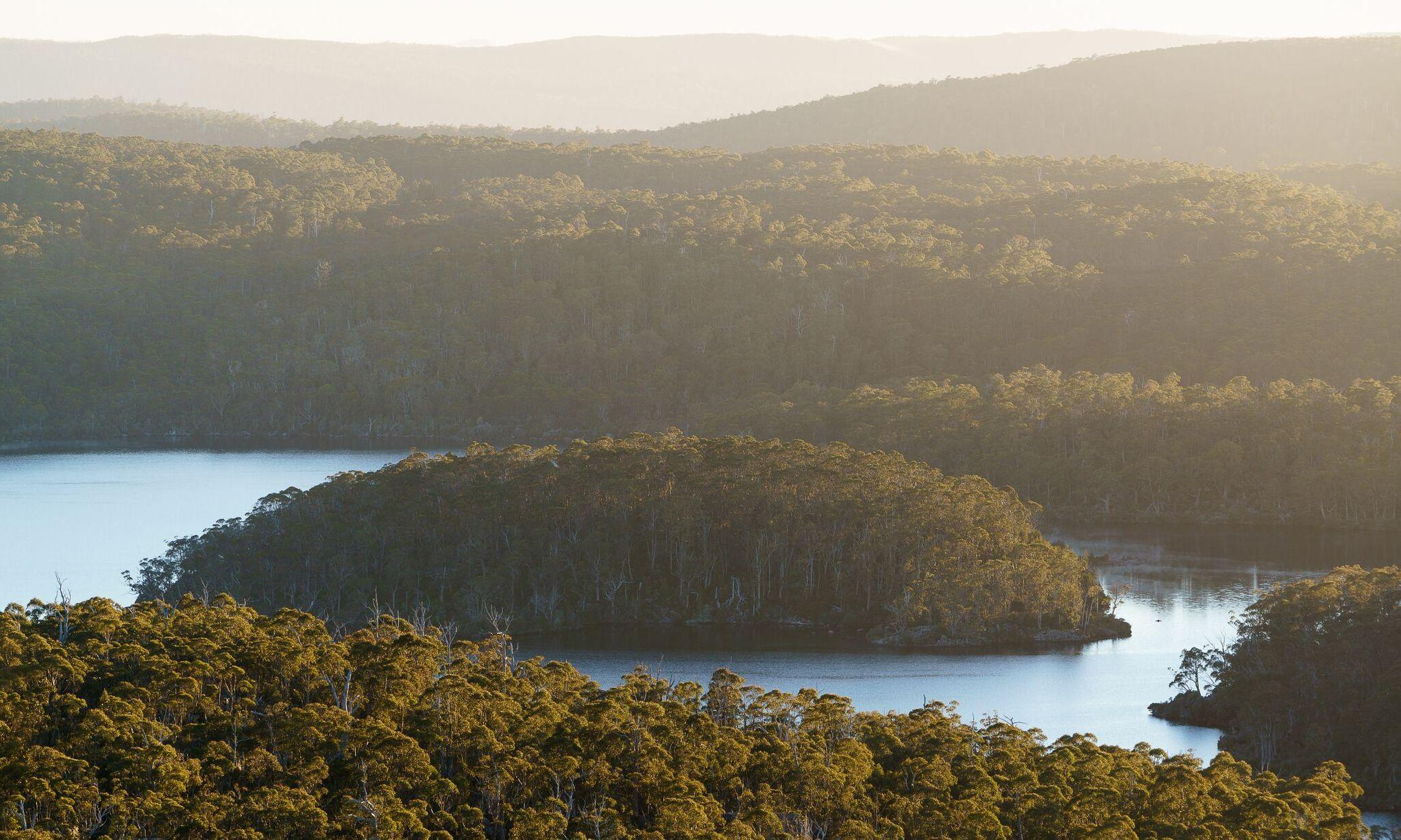
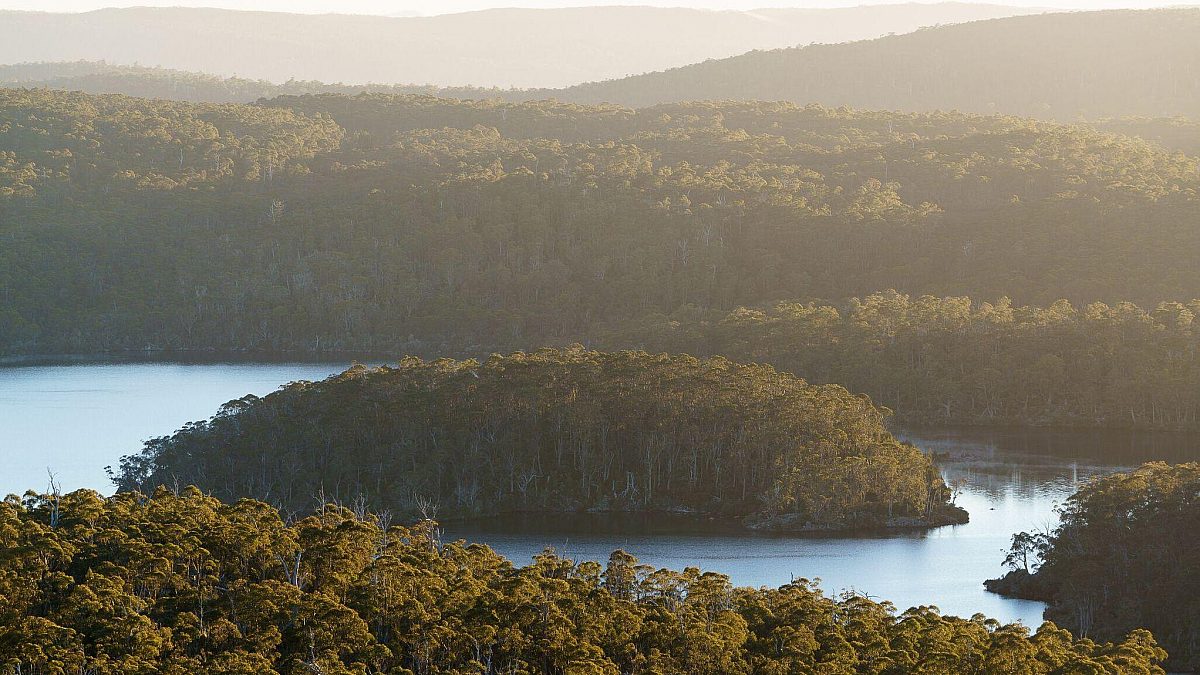
Lake Malbena
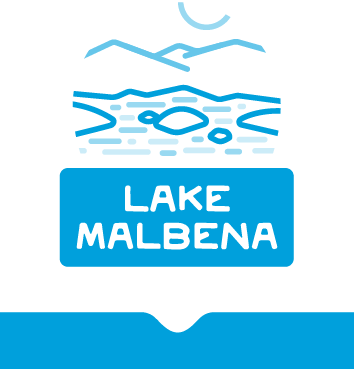
The lake is a remote jewel in the wilderness of lutruwita. It has a long past, make sure it has a living future.

The calm blue waters of Lake Malbena hold the memory of a landscape sculpted by glaciers thousands of years ago.
An unparalleled wilderness
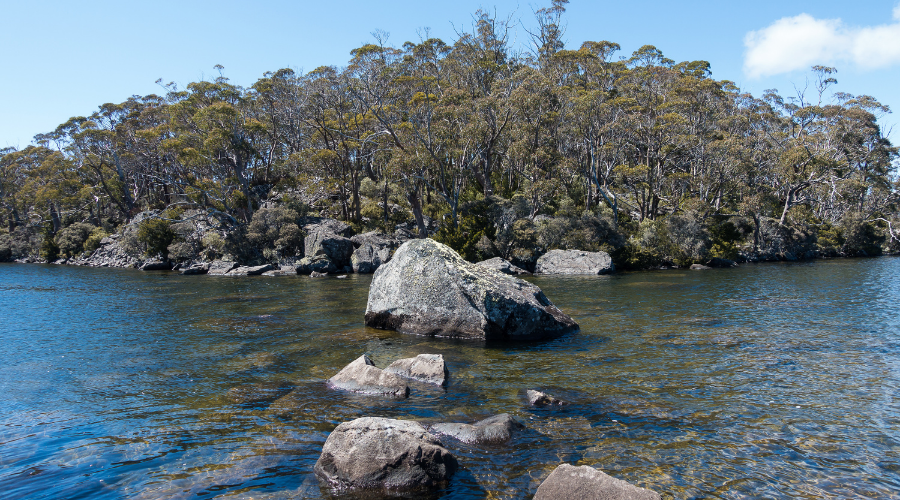
In lutruwita / Tasmania, set within the Walls of Jerusalem National Park’s alpine labyrinth of highland lakes, picturesque mountains and ancient stands of pine forest, lies Lake Malbena. Deep within the Tasmanian Wilderness World Heritage Area (TWWHA), the lake is part of a remote and ancient landscape. The distinct dolerite peaks that give the national park its name were driven up by tectonic activity more than 150 million years ago, while the rest of the work was done by Pleistocene glaciers scraping out the surface thousands of years ago.
Tasmanian First Nations people, the palawa, have an ongoing connection to this place that spans tens of thousands of years. The Tasmanian Wilderness is a diverse cultural landscape, with the lakes, peaks, endemic vegetation and wildlife holding a deep significance for the First Nations community of lutruwita / Tasmania.
"One of the most achingly beautiful parts of lutruwita / Tasmania's world-class wilderness is Walls of Jerusalem National Park, the location of Lake Malbena and the 10-hectare Halls Island sitting on its serene waters."—Tasmanian Campaign Manager, Tom Allen.
On Lake Malbena’s still waters, a tantalising kayak paddle away, is forest-covered Halls Island. Like a world unto itself, it’s a diverse mix of sphagnum moss-covered peatland, Tasmanian alpine yellow gum forest, temperate rainforest and colourful lichen-covered rocky outcrops. It’s a sanctuary for threatened Mount Mawson pine, and birds like wedge-tailed eagles, endangered Australasian bittern and critically endangered swift parrots could be in the surrounding area.
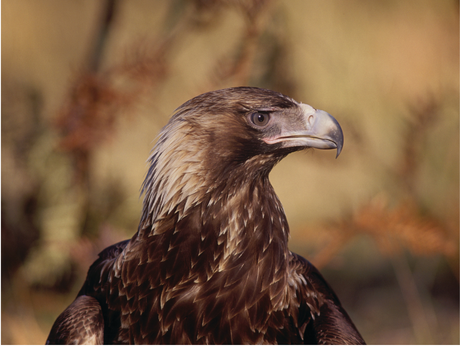
It takes a full day on foot to reach the highland lake. On top of this, the abundance of ironstone within the park can throw off a compass, so even the most confident hikers can get lost here. There are a few small, basic huts throughout the park to provide shelter in these emergency situations.
Perhaps it’s the otherworldly beauty of Lake Malbena that makes it such a special place; perhaps it’s because it’s just so hard to reach. Only recently, all of this could have been lost. A private luxury development has been proposed for Halls Island that will destroy the serenity of this remote, beautiful region of the TWWHA. It will effectively privatise the island to the exclusion of others.
With your support the Wilderness Society continues to campaign against the proposal. Together, we have stopped it every step of the way. However, the developer Wild Drake is again pushing to have its plans approved.
If inappropriate developments are allowed to take place in sensitive environments like Lake Malbena, where will it end? We will never abandon Tasmania’s world class natural wonders, our shared National Parks and World Heritage areas. It’s too special.
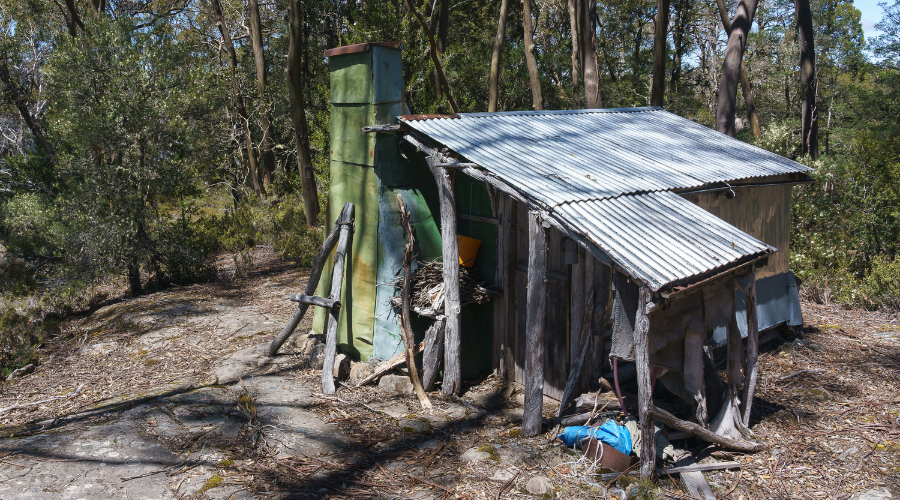
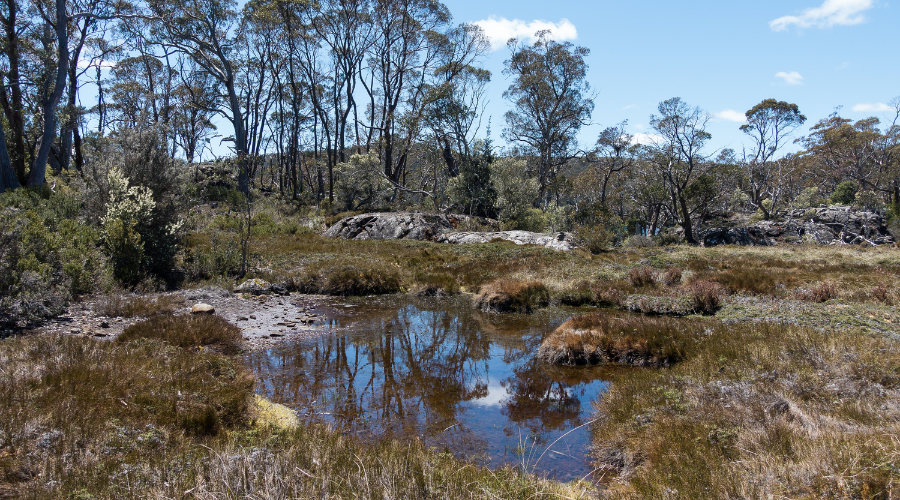
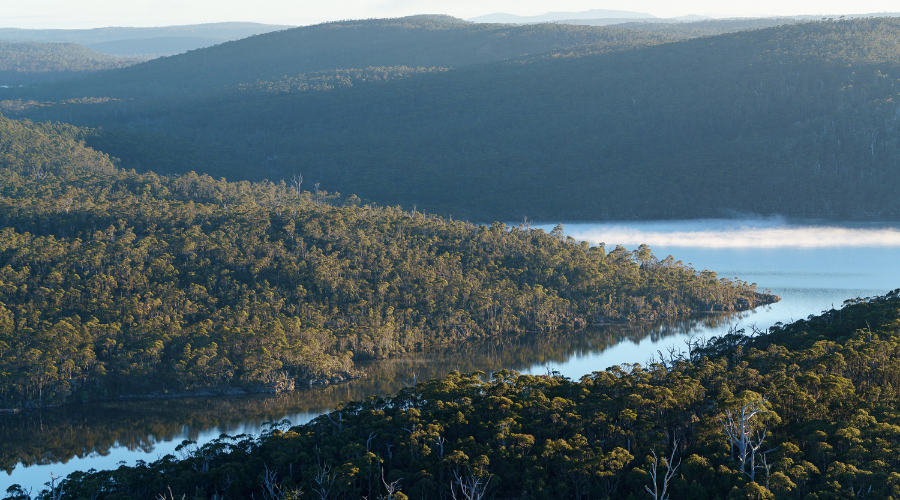
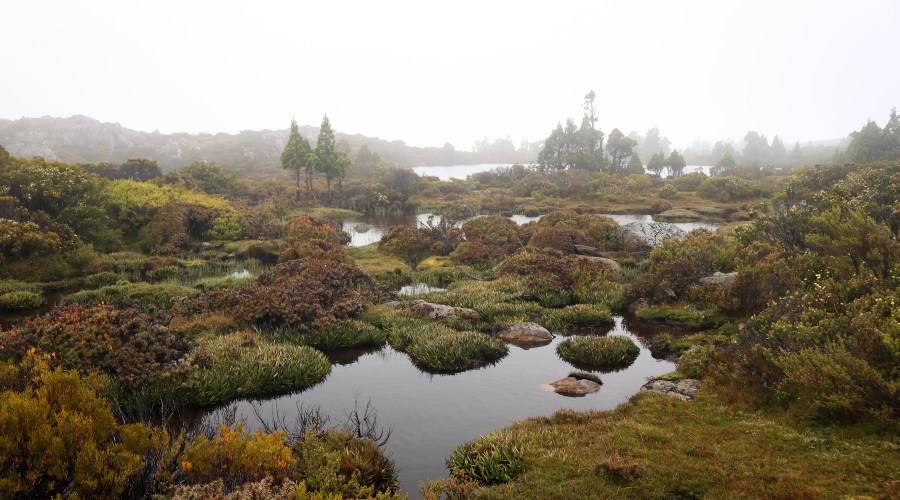
The park's founder, Reg Hall, built this hut on Halls Island. Reg Hall mapped landmarks within the Walls of Jerusalem National Park. Image: Grant Dixon.
Peatland on Halls Island. Image: Grant Dixon.
Lake Malbena is surrounded by vast forests. Image: Grant Dixon.
The remarkably diverse landscape of Walls of Jerusalem National Park. Image: Jimmy Cordwell.
Protecting World Heritage
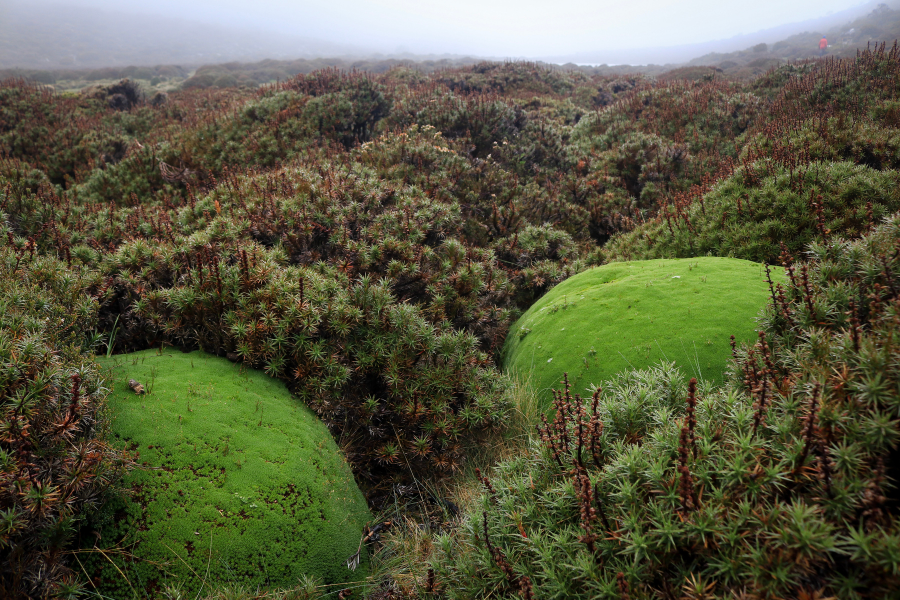
Over the past few years, the Wilderness Society has been at the forefront of a battle against the privatisation of lutruwita / Tasmania’s natural wonders.
Back in 2018, tourism development proponent Wild Drake was granted approval for a planning permit to build luxury accommodation and helipad facilities on Halls Island. This private development will bring hundreds of helicopter flights into the otherwise secluded region, and inhibit the Tasmanian Wilderness World Heritage Area’s unique claim to so many World Heritage Values. But only if it is allowed to go ahead.
Lake Malbena is an incredibly special place that needs to be accessible to all members of the public. Inappropriate development here would:
- Put the Tasmanian wedge-tailed eagle (Aquila audax fleayi), a subspecies of the largest bird of prey in the land, at risk. These magnificent predators are endangered in Tasmania. Their low population is a result of low numbers of breeding pairs and breeding success rate, as well as high impacts from 'unnatural' human causes. These giants of the sky are highly sensitive to human activity (eg. helicopters in the deep wilderness), with disturbance shown to alter behaviours essential for their survival.
- Ruin the unique qualities of the Tasmanian Wilderness, a globally spectacular place. It's a landscape with a history of intensive glacial activity, the likes of which is found nowhere else on the continent. These glaciers carved vast landscapes of alpine lakes that transform into a spectacular golden pools in the sunrise light. It takes many days to traverse this wild landscape, and it is this wealth of wilderness—its remoteness and disconnect from modern mechanical access—that are protected for perpetuity as World Heritage.
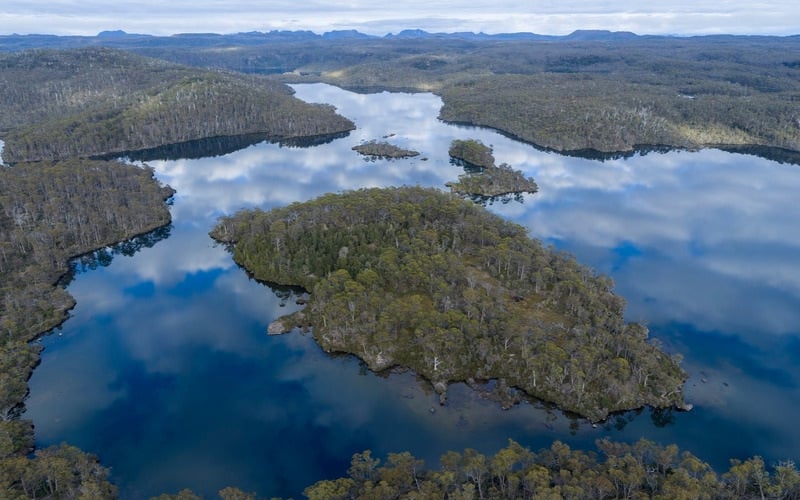
Shortly after the Federal Environment Minister granted an approval for the project, the Wilderness Society launched a legal challenge in the Federal Court. In the years that followed, we undertook a series of legal proceedings, as Wild Drake continued to push for this development to go ahead.
Working closely with our legal team and the Tasmanian National Parks Association, our campaign against this luxury tourism development on Halls Island culminated in a win in the Supreme Court. In December 2021, Wild Drake finally dropped its proposal, a significant victory in the battle to keep Australia’s nature protected and open to the public.
Unfortunately, the company is once again seeking to push through its plans. Despite Tasmania’s Supreme Court denying Wild Drake a planning permit, Wild Drake is still seeking EPBC approval for its proposal. As part of that process over 5,000 of you made submissions expressing concern about Wild Drake's plans. In line with this contentious proposal and 5000 plus opposing submissions, in November 2023 the federal government deferred giving EPBC approval until a full cultural assessment is conducted by the developer Wild Drake.
Until the state government's parks privatisation process is scrapped, disastrous proposals like that at Lake Malbena will continue to be a threat to the Tasmanian Wilderness World Heritage Area.
“Something as globally-significant as lutruwita’s (Tasmania’s) World Heritage area should never be privatised so that the few can profit from the exclusion of the many. The Tasmanian government's parks privatisation policy needs to be scrapped.”— Tasmanian Campaign Manager, Tom Allen.
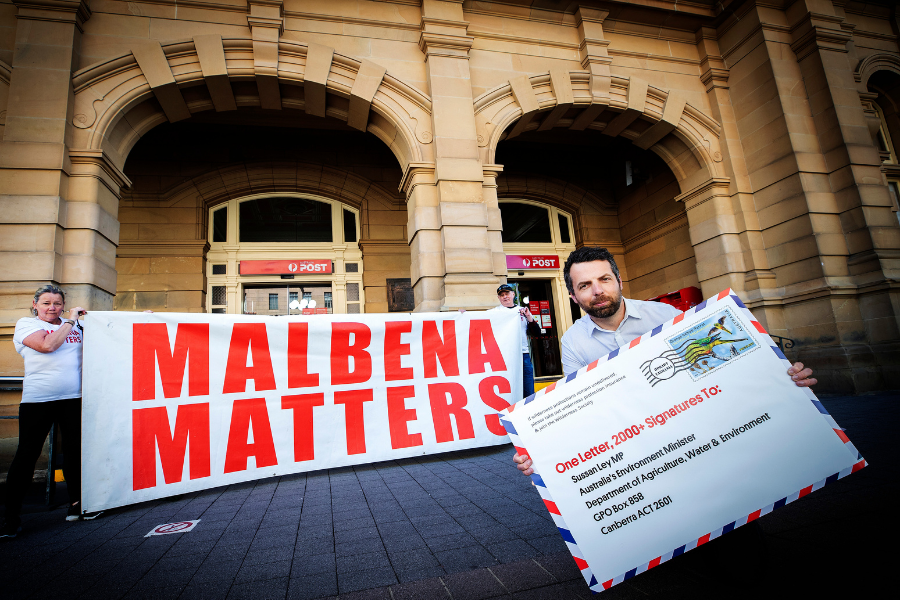
"Luxury accommodation on Halls Island to cater for helicopter tourists will effectively privatise the island and exclude everyone else and degrade World Heritage wilderness," said lutruwita / Tasmania Campaign Manager, Tom Allen.
The Tasmanian Government’s parks privatisation policy remains on the table and continues to invite proposals that breach the TWWHA management plan. This is as unethical as it is irresponsible.
Together, we will keep fighting inappropriate development in the World Heritage Area. We will continue to push Premier Jeremy Rockliff to end his government’s parks privatisation policy and recognise that people want national parks to be accessible to everyone.
